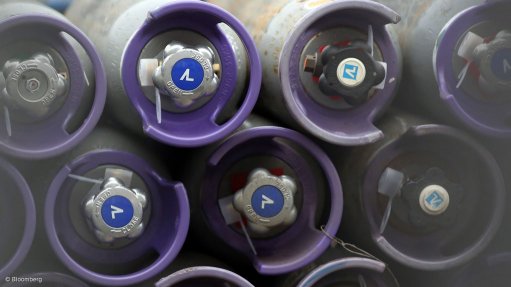Worrying mismatch between climate change activism, corporate lobbying – report
New analysis – conducted by climate think tank InfluenceMap – on climate policy lobbying in South Africa shows that oppositional industry voices are significantly more engaged than pro-climate corporations on key policies – the Climate Change Bill and the Carbon Tax Act.
In turn, this means such policies are either being watered down or delayed on a corporate level.
The research analysed the policy engagement of 16 major companies and 12 industry associations, including Eskom, Sasol, the Minerals Council South Africa and Business Unity South Africa (Busa).
It focuses on corporate engagement with key climate policies designed to help deliver on South Africa’s net zero by 2050 commitment.
According to InfluenceMap, the analysis highlights how, generally, the mining sector is the most oppositional on climate change advocacy, and continues to strongly support the role of coal in the future energy mix.
It also shows the South African Carbon Tax attracted the most engagement of all the policies analysed, with a majority of the lobbying activity being negative. This advocacy included pushing for extra tax allowances, lower tax rates and delaying the timeframe for implementation.
Some of the strongest opponents to the tax have been energy and chemicals company Sasol and industry associations Busa, the Minerals Council and the South African Petroleum Industry Association.
The Climate Change Bill – South Africa’s landmark climate legislation – has seen attempts to weaken its penalties for emitters who exceed their carbon budgets. This change has been advocated for by Eskom, Busa, the Minerals Council and the Chemical and Allied Industries’ Association.
The two largest carbon emitting companies in South Africa – Eskom and Sasol – scored C and C- respectively on InfluenceMap’s A-to-F system for tracking corporate lobbying on climate policy.
This, InfluenceMap says, indicates mixed engagement on climate policy. For example, Eskom has supported policy to accelerate the uptake of renewables; however, it advocates for a continued role for fossil gas and coal.
InfluenceMap says although Sasol has expressed positive positions on carbon pricing, it has also advocated to weaken the Climate Change Bill and an ambitious Carbon Tax. These two companies registered the most active engagement of those headquartered in South Africa.
Despite nearly 75% of industry supporting renewable energy development in South Africa, InfluenceMap says certain sectors continue to strongly advocate for a continued role for coal and fossil gas in the energy mix.
More than half of the companies analysed for the report have at least one membership to an industry association with climate policy engagement misaligned with the Paris Agreement (ranked as D or below on InfluenceMap’s database).
South Africa’s energy system currently relies on coal for 70% of its energy production. The country experiences increasingly severe rolling blackouts and is aiming to transition its energy mix away from coal under the Just Transition Energy Partnership signed at COP26.
According to Climate Action Tracker, the country’s current climate policies are “insufficient” to limit warming to 1.5 oC.
“South Africa is not only vulnerable to the physical effects of climate change, but it’s also enduring a severe energy crisis within a system that relies heavily on coal.
“Despite this, key parts of the country’s business community continue to support a continued role for fossil fuels like coal and gas.
“. . . negative lobbying appears to have successfully weakened key climate policies, which will end up making it harder for the country to achieve its long-term targets,” InfluenceMap analyst Ciara Ellis says.
The report identifies the potential for positive climate voices to emerge within the corporate sector, noting that several companies appeared to have either none or very limited engagement with specific climate policies.
One of the difficulties noted in carrying out the research, however, was that there was a lack of lobbying transparency regulations in South Africa, leaving non-public engagement pathways open to industry.
InfluenceMap’s global analysis has often found a strong correlation between a failure by governments to act on climate, and a powerful fossil fuel lobby alongside limited transparency around the policy process, resulting in ‘policy capture’.
Responding to the report, Old Mutual Investment Group stewardship head Nicole Martens says the report highlights a number of the constraints facing South Africa’s largest emitters in their transition journeys – including those obstacles which are self-created – and presents a clear imperative for investors to act.
Investec sustainability head Tanya Dos Santos says dialogue and action on South Africa’s climate goals has never been more important.
“The more we collaborate and engage on climate policies and developments, the greater the chance that we will actually meet our climate ambitions – as individuals, as a company, as a sector and as a country.
“We may disagree on how we get there and which pathway to follow but we must hold each other accountable for promises made and for ensuring we balance all perspectives as we accelerate the just energy transition,” she says.
Just Share climate risk analyst Emma Schuster says the report demonstrates how negative climate lobbying in South Africa requires a much higher level of scrutiny locally.
“The damaging impact of this obstruction is ever more stark, given the country’s longstanding, intersecting crises of energy, jobs and growth. And yet, as the report finds, transparency and disclosure on companies’ climate policy engagement activities in South Africa is still limited. In fact, in many cases, it is non-existent.
“The report also confirms how negative climate lobbying is often outsourced to industry associations, while the companies themselves publicly proclaim their support for the Paris Agreement,” she states.
Comments
Press Office
Announcements
What's On
Subscribe to improve your user experience...
Option 1 (equivalent of R125 a month):
Receive a weekly copy of Creamer Media's Engineering News & Mining Weekly magazine
(print copy for those in South Africa and e-magazine for those outside of South Africa)
Receive daily email newsletters
Access to full search results
Access archive of magazine back copies
Access to Projects in Progress
Access to ONE Research Report of your choice in PDF format
Option 2 (equivalent of R375 a month):
All benefits from Option 1
PLUS
Access to Creamer Media's Research Channel Africa for ALL Research Reports, in PDF format, on various industrial and mining sectors
including Electricity; Water; Energy Transition; Hydrogen; Roads, Rail and Ports; Coal; Gold; Platinum; Battery Metals; etc.
Already a subscriber?
Forgotten your password?
Receive weekly copy of Creamer Media's Engineering News & Mining Weekly magazine (print copy for those in South Africa and e-magazine for those outside of South Africa)
➕
Recieve daily email newsletters
➕
Access to full search results
➕
Access archive of magazine back copies
➕
Access to Projects in Progress
➕
Access to ONE Research Report of your choice in PDF format
RESEARCH CHANNEL AFRICA
R4500 (equivalent of R375 a month)
SUBSCRIBEAll benefits from Option 1
➕
Access to Creamer Media's Research Channel Africa for ALL Research Reports on various industrial and mining sectors, in PDF format, including on:
Electricity
➕
Water
➕
Energy Transition
➕
Hydrogen
➕
Roads, Rail and Ports
➕
Coal
➕
Gold
➕
Platinum
➕
Battery Metals
➕
etc.
Receive all benefits from Option 1 or Option 2 delivered to numerous people at your company
➕
Multiple User names and Passwords for simultaneous log-ins
➕
Intranet integration access to all in your organisation


















